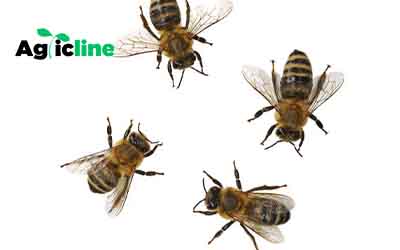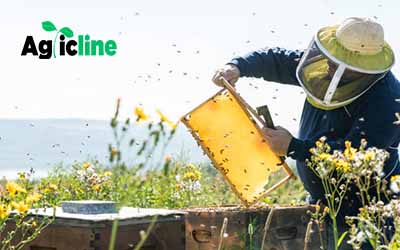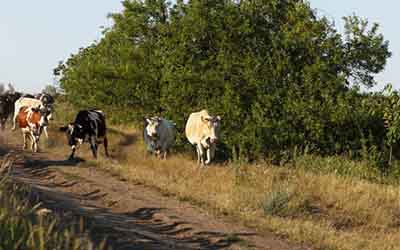In today’s diverse market, we see a plethora of agricultural investment options, one would also be interested in knowing the top farming investment in Nigeria.
These investment options range from the most foundational, owning a tangible business, to those requiring a bit more legwork, like stock market investments or other types of investments that fall outside of human control.
When we refer to something as being beyond human control, what does that mean? To understand this, let’s first consider what a physical business entails:
In such a setup, we have a clear view of all aspects of the business. We can manage our staff, we can physically see the products or services we offer, we can identify the strengths and weaknesses of our company, and we can refine our approach accordingly.
However, when we shift to investing in an online business, we become significantly more susceptible to a host of issues. Suddenly, all of the aforementioned considerations cease to apply. We can’t see what we’re investing in, we can’t effectively supervise our workforce, and so on.
Regardless of whether you’re a hands-on farm owner or you’ve partnered with an investment firm, there’s one thing that’s clear: farming investment is a profitable venture. Recently, there’s been a lot of buzz about farming investment in Nigeria. But what does this entail and how can one get involved?
Investments in farming in burgeoning economies like Nigeria have proven to be highly lucrative in recent years, and all signs point to this trend persisting.
Thanks to new regulations from Nigeria and its Central Bank that promote domestic farming, there’s been a surge in Nigerian businesses that offer opportunities to invest in this sector.
Whether the investment is in animal farms – take goat farms for example – or in maize farms, which are incredibly popular, one thing is certain: it’s a venture that won’t result in financial loss.
So, we have the option to venture into this on our own or, more sensibly, partner with a firm that specializes in such investments and can provide us with long-term support.
Farming investment in Nigeria is a highly profitable venture, and it’s something we should think about for future investments. Is it something we should consider for the long haul? Absolutely, and we should do so because of the vast opportunities it presents.
With the right preparation and basic knowledge of farming, you can make significant strides in this market. In this article, we’ll explore agricultural ventures in Nigeria that don’t require a large initial investment. You can either own the investment or form a partnership with an investment firm.

Why should you invest in agriculture in Nigeria?
(1) Nigeria boasts a population of about 200 million people – that’s twice the size of Zimbabwe and South Africa combined.
The entire Nigerian population relies on farm-produced staple foods and other agricultural products for their daily meals and sustenance. Over 80% of Nigerians buy farm food at the market.
(2) Nigeria is home to large expanses of fertile, uncultivated farmland. The country spans approximately 910,770 square kilometers, excluding bodies of water. This makes Nigeria one of the largest countries in Africa, with 70% of its land suitable for farming.
(3) The Nigerian government is keen on boosting farming to increase food production and decrease imports. They’re ready to provide necessary support and logistics to potential farmers/investors.
(4) Nigerians have more buying power than any other Africans. We pay cash here. Nigerians are the life of the party, and the food used for celebrations could feed four other African nations.
(5) Once agriculture in Nigeria is fully utilized, farming could surpass oil as a major foreign currency earner. This would allow Nigerian farmers to earn income in Naira, Dollars, and other international currencies.
Top farming investment platforms in Nigeria
In Nigeria, there are several agricultural investment platforms that offer different investment opportunities and returns based on the agricultural produce.
Some platforms solely connect farmers with investors, while others are actively involved in agriculture.
- Agro partnership
- Agrorite
- Pay farmer
- Bazuze
- Crowdyvest
- Ezfarming
- Letsfarm
- Farmsponsor
- Farmcenta
Profitable farming ventures in Nigeria
Here are some of the most profitable farming ventures in Nigeria:
Pig Farming
Pig farming is a profitable venture in Nigeria due to the fast breeding rate of pigs, which can have up to 20 piglets a year. Pigs also produce more meat compared to other livestock, resulting in a high yield.
Apiculture (Bee Farming)
Bee farming is a profitable agricultural investment in Nigeria due to the increasing demand for honey and its by-products.
Honey, a natural sweetener, is a popular substitute for sugar. Bees are prolific honey producers, and bee farming requires minimal space and investment to start.
Poultry farming
This is a highly profitable agricultural sector to delve into. This type of farming involves raising domesticated birds like chickens, ducks, and turkeys with the primary aim of producing meat or eggs for consumption.
With an increasing preference for white meat over red meat, poultry farming presents a lucrative business opportunity. The market is consistently open, more so during festive periods.
Aquaculture (Fish Farming)
Fish farming, especially of catfish and tilapia, is experiencing a surge in demand. Certain locations offer BBQ made from these fish species, further driving up their demand.
They can be sold fresh or smoked. Fish farming is a highly profitable venture that remains largely untapped.
The fish can be reared in a small pond or even at the back of your house, and some fish farming businesses offer partnership or sponsorship opportunities.
Cassava farming
While not common globally, thrives in Nigeria where cassava-based products like garri, eba, pupuru, or fufu are daily staples. It’s a profitable venture open to all. Beyond the well-known food products, cassava also yields byproducts like animal feed and commercial caramel.
Rice Farming
Rice farming is a lucrative agricultural investment in Nigeria, especially in the north. As a staple food, rice offers farmers a high earning potential.
Despite its high consumption rate, Nigeria’s domestic production is insufficient to meet the demand. Thus, investing in rice farming is a wise move.
Heliciculture (Snail Farming)
Snail farming is a neglected yet profitable agricultural business. Snails are safe for consumption and cosmetic use, making them an excellent investment.
Its neglect as a farming business makes it even more attractive as snails are pricey and often scarce during the dry season, offering you a chance to earn.
Tomato Farming
Tomato farming in Nigeria, particularly in the northern region, is a thriving business. There’s a high demand for investors, especially from the southern region.
Starting a tomato farm is not complex; even a small plot of land in your backyard can be transformed into a tomato nursery.
The importance of tomato production in Nigeria is immense as it is used in almost every meal, including stews, soups, and salads.
A large percentage of Nigerian dishes are incomplete without tomatoes, hence the high demand for investors in this industry.
Pineapple Farming
Pineapple, just like money, is sweet, and everything sweet equates to money. Any Australian farmer will attest to the profitability of pineapple farming in their country.
Any juice manufacturer who fails to include pineapple flavor in their product line risks going out of business. This shows how popular pineapple is, not just in Nigeria, but globally.
Nigeria seems to have a more favorable soil for pineapple farming than Australia where farmers are thriving. A pineapple costs about N200 in Lagos’ Mile-12 market. If you can harvest one million in a year, you stand to earn at least N80,000,000 (N80,000,000 x 1,000,000).
Bean Farming
A bag of beans is twice as expensive as a bag of rice and garri. Northern Nigerians are making a name for themselves in bean farming, supplying almost all of Nigeria and beyond.
However, this same bean can also thrive in the soils of Nigeria’s South East, South West, and South South. So, why only the North?
Catfish Cultivation
The business of catfish farming is experiencing a surge in Nigeria, but the question is, how many are doing it right? If done correctly, it can lead to wealth. In restaurants, a single catfish sells for N700, while in the open market, it goes for N400.
Goat Rearing
Commercially raising goats is predominantly seen in the North. It’s perplexing why the South is so dismissive of farm investments, considering the millions that can be made.
Why settle for selling used shoes in Oshodi, earning a few thousand Naira a year, when you could engage in a lucrative farming business and earn millions? Farmers are among the wealthiest people in the United States and Australia – get involved in professional goat rearing and make money. A fully mature goat costs between N15,000 and N40,000.
Maize Cultivation
You’ll never comprehend the profitability of maize farming in Nigeria until you give it a try. What we love about maize is its quick turnaround time. The entire process from planting to harvesting takes less than four months.
Plantain Plantation
What’s fascinating about Plantain is its perennial nature. Once planted, it continues to yield year after year.
Like rice and garri, plantain is a popular food item in Nigeria. Given the country’s population, any widely consumed food is a potential goldmine.
Despite this, Nigerian farmers haven’t fully exploited the wealth creation potential of plantain farming.
Plantain commands a high price in Nigeria and sees year-round demand. It’s a versatile crop, fit for frying, boiling, or roasting. We believe there are millions of Naira lying untapped in Nigeria’s agricultural sector.
Conclusion on Farming investment in Nigeria
In a world that has seen significant transformations, the value of agriculture remains immeasurable. This underscores why an investment in agriculture is a wise decision. With the advent of global civilization, agribusiness can be simplified and made more accessible.
None of the agricultural investment opportunities mentioned above will be in vain if you invest your time and passion into them.
The aim of this piece is to spark an interest in you to venture into farm investment. Believe us, the returns will be rewarding. As one of the world’s largest contributors to GDP, the agriculture industry deserves the attention of investors like you.
Since your opinion counts on our platform, feel free to air your view below.



